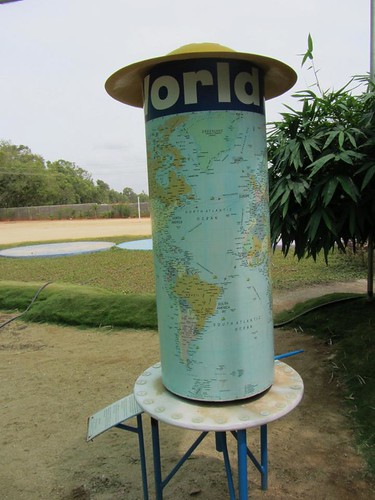
After I finished teaching an intensive Networked NGO workshop for Packard family planning grantees in Delhi, I headed to Bangalore to visit my friend and colleague, Rufina Fernandes where I conducted a social media workshop for staff and teachers and got see a start up education company and its CSR program, close up. I met Rufina in 2008 in Australia when I keynoted the Connecting Up Conference and taught social media workshops for NGOs. At the time, Rufina was the CEO of Nasscom Foundation and transforming the nonprofit technology sector with her incredible networking, scaling, and capacity building skills.
She again invited me to present at the Nasscom NILF Conference in 2010 and teach workshops. One of things that struck me about India and it still resonated during my last visit – is how businesses, individuals, and nonprofit blend their strategies for making social change. Rufina’s new job is working for an education software start up that is developing operational software for schools It is called: EnTeEf: “Enabling Teachers’ Effectiveness “ in classrooms. www.enteef.com.

But it isn’t a software being developed in a vacuum. It is being beta tested as part of a new model of high quality education in schools called: Sujaya : India’s 1st K-12 Hybrid CBSE Schools www.sujayaschools.com. The school’s curriculum is based on Howard Gardner’s Multiple Intelligences theory.

Here’s the third rung of this strategy. It comes from Klay, India’s 1st NAEYC-USA compliant Chain of Prep Schools www.klayschools.com. One of the first schools was launched in Bangalore, catering to working parents in its technology industry who are seeking high quality pre-school. The profits from the daycare support the school. I was invited to teach an informal social media workshop for the staff, including the IT staff for the Sujaya school, Vijayanand Rao, who is a fellow from TeachforIndia.
This start up has a triple bottom line and is the vision of founder and CEO Priya Krishnan – a woman who is passionate about high quality education and technology.
The essence of this start-up (it’s not a software startup) is that Klay School profits support the Sujaya School plan and the software Enteef is being developed as a product that enables scale and an exit to attract private capital.

At the Sujaya School, I visited a second grade art class. They were busy drawing planets or rockets. The teacher introduced me as a visitor from America and asked if there the children wanted to ask me any questions. The first set of questions were typical for 7 or 8 eight year olds, asked in perfect English: ”What’s your favorite color?,” “Where do you live in the US?” I drew a map on the black board of the US and showed them California. This prompted some amazing questions for children that age anywhere:
- How many jets did you take to get to India?
- How deep is the Pacific Ocean?
- How many beaches does America have?

I also visited the sixth grade class. They start the day with a student posting an inspirational quote on the board. I observed a lesson nutrition and healthy eating. The teacher invited the students to quiz me on what I had eaten over the last couple of days and got feedback about whether I was eating from the right food groups!

The school has an emphasis on movement and learning. In the green courtyard, there was physical education class where they teaching the kids to do stretches and exercises. Movement is also in the classroom – for example, this hop scotch board to learn spelling.

The curriculum integrates the use of technology, for all aspects of instruction and managing the school. There are computers and large monitors in each classroom, Internet access, and of course, the software development.

One thing that I loved was the playground. It was designed for learning – almost like an exhibits at any children’s museum in the US. Each slide, swing, or sand box had lessons in math, english, geography, or other subjects integrated.

My favorite was the world time zone calculator. You turn the globe to any time and see what time it is another part of the world compared to India. I would love to have a smaller version of this on my desk when scheduling meetings with folks across time zones.
I look forward to seeing how this start up transforms early childhood education in India. Stay tuned.
